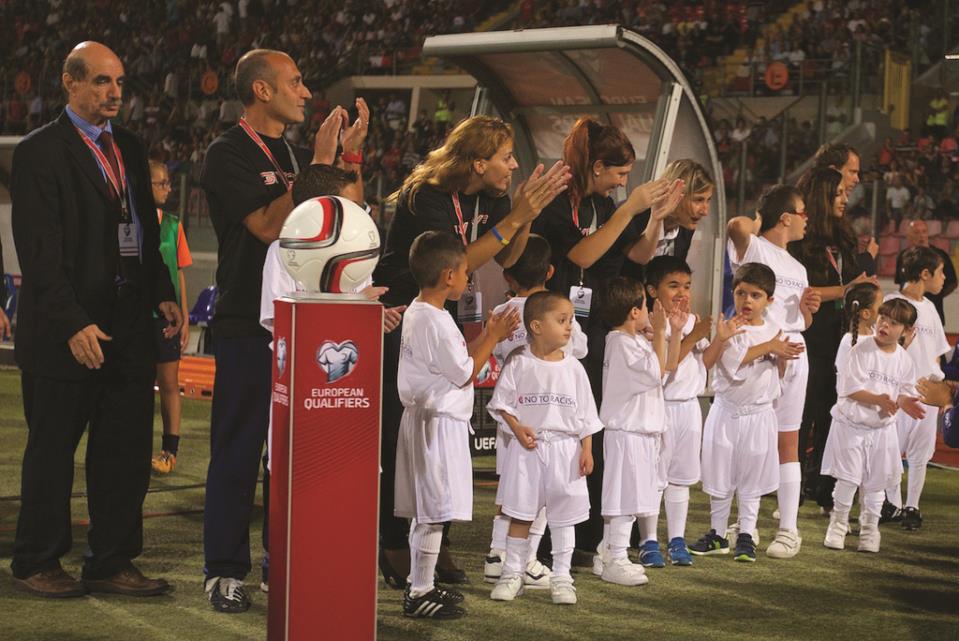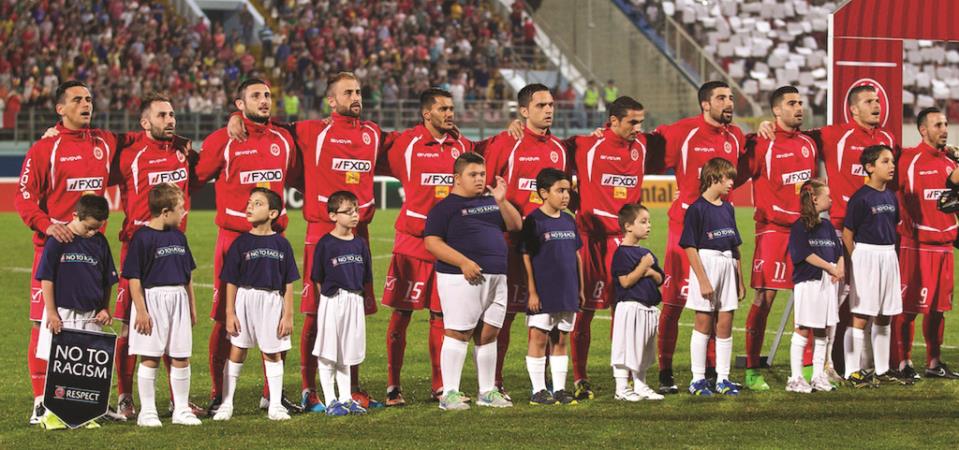I'm not a big football fan, in fact I'm not even a little bit fond of the sport, but last Monday, thanks to the Malta vs Italy World Cup Qualifier, my love for the game multiplied a thousand fold.
The crowd roared, the referee gave the nod, and the players grabbed the hand of a child and walked out on the field to sing their national anthems. But because children walking out hand-in-hand with football players has become such a common sight these days, not many might have noticed that the child escorts during last Monday's match, were very special children.
Last Monday, as part of its social responsibility campaign, the Malta Football Association invited a number of the children who attend the Inspire Foundation to escort Malta's and Italy's players on to the field. These children have various disabilities or learning difficulties, yet on that field it was their ability and their childhood that was celebrated.

The result: the experience of a lifetime for the children and a loud and clear message of inclusion for the rest of the world.
Football is probably the world's most popular sport. It attracts people from all walks of life, and though it can be the basis for many heated arguments and even violence, those at its helm have long known its power to change minds and bring about social change.
This is why FARE (Football Against Racism in Europe) was set up back in 1999 with the aim of fighting discrimination in European football. With backing from UEFA, FIFA and even the European Commission, it has worked wonders. But the network's latest campaign - RESPECT - has widened its scope further to work towards respect for gender, race, religion and ability.
Most of you are nodding in agreement right now, because we all like to think of ourselves as inclusive, respectful and accepting, but the truth is that very few of us know what real inclusion truly means. At best, most of us tolerate - but that's not what inclusion is about.
You see, a socially inclusive society is not one that just accepts and tolerates difference. It's not one that caters for everyone's basic needs, but one in which people feel valued despite their different abilities, disabilities and differences.
An inclusive society goes beyond (way beyond) meeting people's necessities such as medical care and physical welfare. Inclusion is about the protection of dignity with a big emphasis on respect; it is about integration in every sense, from the social to the economic, the political and the cultural.

For example, some might argue that children with special needs do not particularly require such an experience to have a fulfilling life. Many might even argue that special children do not appreciate the grandiosity of escorting international football players on to the field of play - or at least not as much as other children would. Some would say that whilst such a gesture is sweet, what these children really need is education, medical attention and physical aides. The truth is that they need, and are entitled to, all of the above and more. They need and are entitled to full inclusion in every aspect of life and this should not be given as a privilege but as their right. Although society is in a position to hold back, inclusion is not ours to give and provide, it is everyone's to have and to hold.
A truly socially inclusive society does not impose tests to qualify for inclusion. It is based on the belief that we are all capable of learning; that all of us need support at some point or another; that words are not necessarily the only means of communication, and that with all our abilities and disabilities put together we can make the world a better place. A truly inclusive society recognises everyone's strengths and struggles and values everyone's contribution.

This is easier said than done, of course, but sport can fast track the process.
Football, in particular, has an incredible and unique ability to mobilise and inspire. By its very nature, it is about inclusion through participation. It's about belonging to a team; it's built around the values of a truly inclusive society, respect for team players, respect for opponents, acceptance of the game's rule, teamwork and even fairness.
In sport there has to be a winner, but when sport facilitates inclusion, everyone is a winner!
Photos by Paul Zammit Cutajar